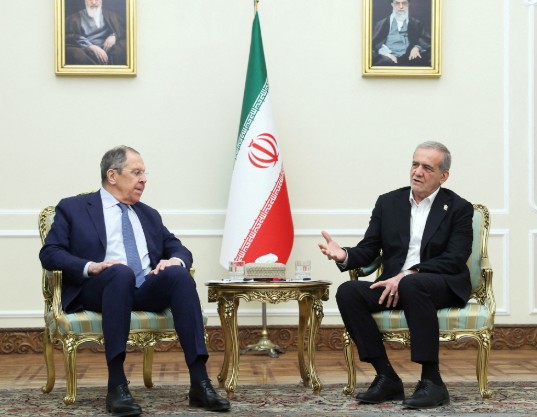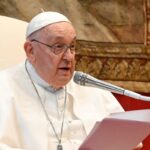Moscow, Russia – In a development that could reshape regional power dynamics, Russian Foreign Minister Sergey Lavrov met with Iranian Deputy Foreign Minister Abbas Araghchi in Moscow, signaling a deepening alliance between Moscow and Tehran as tensions escalate between the United States and Iran over stalled nuclear negotiations.
Lavrov emphasized the strategic significance of the talks, revealing that Russian President Vladimir Putin had recently held “intense” discussions with senior Iranian officials a move he described as part of an “unprecedented dynamic in political dialogue” between the two countries.
“Our bilateral cooperation has entered a new phase,” Lavrov said during a press conference. “President Putin’s engagement with Iranian leaders reflects a shared vision for resisting external pressures and promoting a multipolar world order.”
The Moscow meeting comes just days ahead of a high-stakes showdown between Washington and Tehran over the future of the 2015 nuclear deal, officially known as the Joint Comprehensive Plan of Action (JCPOA). As U.S. negotiators push for renewed constraints on Iran’s nuclear program, Russia’s growing alignment with Iran adds another layer of complexity to already fraught diplomacy.
Both Moscow and Tehran have faced Western sanctions and increasing isolation in recent years, driving them closer both economically and militarily. Analysts say the latest talks may pave the way for deeper energy cooperation, arms deals, and coordinated political strategies in key regional arenas such as Syria, the Caucasus, and the Persian Gulf.
Araghchi, a veteran nuclear negotiator, echoed Lavrov’s sentiments, calling for “stronger Eurasian solidarity” and condemning what he labeled as “Western interference in sovereign affairs.”
While no specific agreements were announced following the meeting, diplomatic insiders suggest Moscow may play a larger role in backing Iran’s position in upcoming nuclear discussions, potentially acting as a counterweight to Western pressure.
The growing Moscow Tehran axis is likely to unsettle Washington and its allies, especially as Russia seeks to leverage its influence in the Middle East amid global power realignments prompted by the Ukraine war and shifting U.S. foreign policy priorities.
As global attention turns toward the next round of nuclear talks, Russia’s deepening involvement with Iran could tip the scales or further stall a fragile diplomatic process already on life support.



